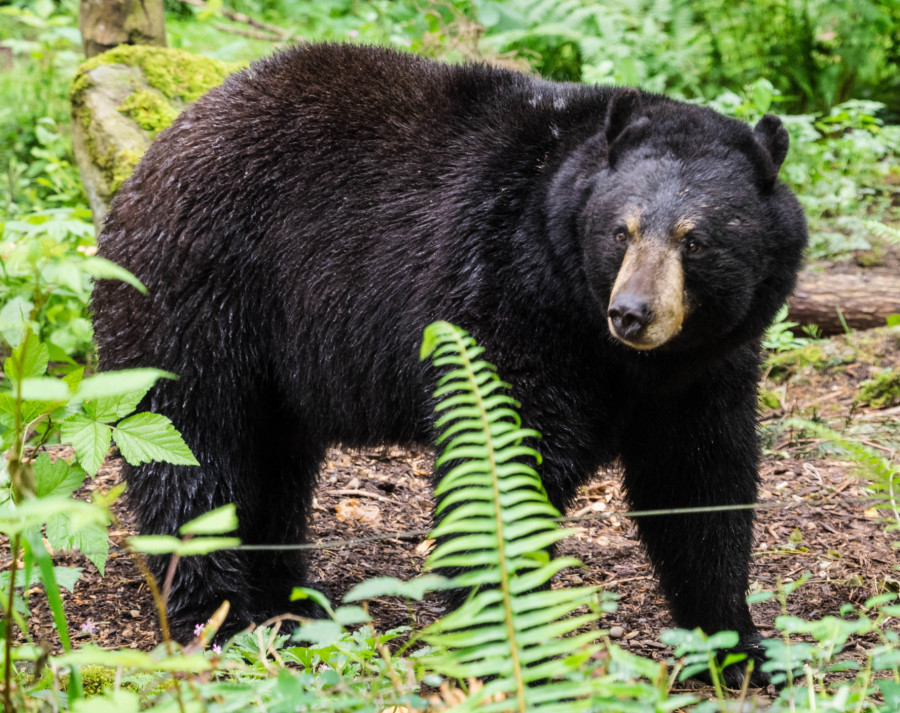Picture yourself walking through the woods. The tree leaves dance in the sunshine, the moss is a thick carpet under your feet, the air feels fresh and clean. Out of the corner of your eye, you notice something move. Then it stands up. Whirling around, you spot a giant black bear, less than a hundred yards away. He sniffs at you. Your spine prickles. What will you do?
You don’t have many options. You can stay there, frozen, and hope he goes away. You can run, but he might catch you. Or you can pick up a big stick and charge at him like a jousting knight.
Silly as it may seem, I think being a birthmother can be a lot like encountering a bear in the woods. I reacted in similar ways when I first became a birthmother.

My first instinct was to freeze. As I held my newborn baby in the first hours of his life, I did not want to let him go. I hoped the still perfection within the quiet hospital room would last forever. My husband, Neil, and I took turns cuddling with Dominic. The little guy clung to my finger, while intermittently opening his eyes. I wished the adoptive parents, who had been waiting in the lobby during most of my labor, would disappear. With desperation, I reevaluated my decision to give Dominic for adoption; nothing in my situation had changed, except that I now held the precious gift in my arms.
When I could no longer stay frozen in the moment, I started fighting my new reality. Getting pregnant was not my fault, I argued with myself. Why was I the one with the severe life consequences while the birthfather was off galavanting around the countryside? I vehemently denied my motherhood, and I may have even verbally denied grandparenthood to my parents. I metaphorically shut my eyes, clenched my fists, and held my breath until my face turned red, battling against the pain and meaning of losing a child.
Fighting gave way to fleeing. I vacillated between the two. Shoving my feelings into a box and putting it on a high closet shelf seemed easier than crying incessantly. For nearly two weeks after Dominic was born, I hid in my house. I ignored text messages and calls; Neil ran interference. Sometimes I tried to pretend that none of it had happened: no pregnancy, no baby, no adoption. That strategy was ineffective, to put it lightly.
Denial, anger, bargaining and sadness are all elements of grief. For me, they came out like my body’s fight or flight response. These symptoms of grief are perfectly normal, regardless of whether the grief pertains to physical, emotional or psychological loss.
“The Third Choice: A Woman’s Guide to Placing a Child for Adoption” by Leslie Foge and Gail Mosconi, discusses grief specifically as it pertains to birthmothers.
Loss comes in many forms…And each loss carries with it a grieving process. While we have rituals around death, most other losses are not formally recognized, which only reinforces the feeling of unreality that surrounds the grieving process of adoption….Everyone grieves in her own way. There really is no right or wrong way, no one prescription that will make the hurt go away. Grief has a way of taking its own path. Grieving is really part of the recovery process.”
I became tired of my grieving cycle pretty quickly. I expect the grieving to never end, but I do expect myself to carry on with my goals as a wife, writer, friend, sister, daughter.
My breakthrough came when I realized that I possess a new identity. Instead of labeling my situation an “unfortunate circumstance,” as if it just “happened” to me, I took ownership and donned a “new identity” as a birthmother. Deciding not to spend my energy trying to buck it off or run away from it, I focused on embracing it. What could this new identity look like and become? How can I best fulfill this new role?
I have a new place in life, one I never anticipated or originally wanted. Sometimes I still mourn the loss of the life I thought I would have, but more and more I find myself running toward my role as a birthmother rather than away from it.
Being a birthmother allows me to have a relationship with the child I love so much. I grieve the lost opportunity to parent him, but I want him in my life so badly that I find myself diving head-first into being his birthmother.
Furthermore, I find myself hungry to connect with other birthmothers. I crave the companionship of other women who have made the same choice as me. As part of this community, I want the world to know we are not all incompetent mothers. We’re not all selfish, slutty or hard-hearted. We each battle our own demons, but in the end, we chose empty arms because we love our babies.
This blog is one way I’m embracing my new identity. I’ve resolved to add “awesome birthmother” to my list of goals, as an alternative to freezing, fighting or fleeing from it.
But if you are in the woods, I don’t suggest hugging a bear.
